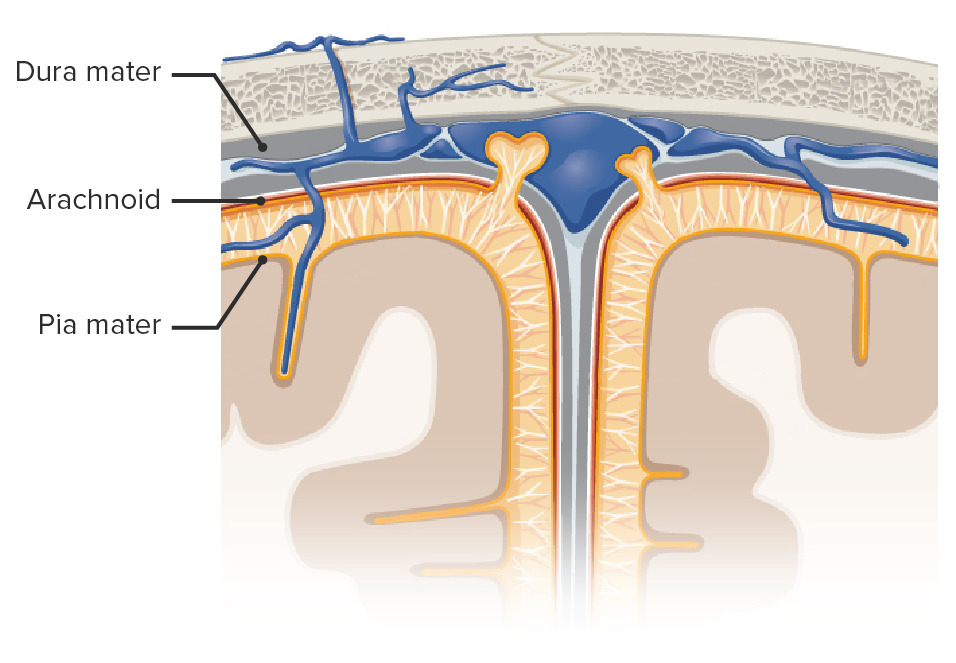Playlist
Show Playlist
Hide Playlist
Metastatic Brain Tumors: Surgery – Treatment
-
Strowd CNS Tumors Brain Metastasis.pdf
-
Download Lecture Overview
00:01 How do we treat brain metastasis? Well, they're common. 00:04 There's been a lot of studies and understanding about how we should treat these patients. 00:08 Brain metastasis are the most common central nervous system malignancy, with about over 160,000 new cases per year. 00:15 And there are two treatments that I want you to think about. 00:19 The first is surgery or a craniotomy. 00:22 Going in and taking out a symptomatic lesion, making a diagnosis, and then sending the patient to subsequent treatment. 00:30 The second is radiation therapy. 00:32 And we'll learn about multiple different types of radiation, including stereotactic radiosurgery, which you can see here that really reduces the risk of subsequent brain metastasis. 00:42 And we'll talk more about this in the next few slides. 00:46 When do we think about surgery? Well, surgery is really optimal in three situations. 00:51 If there is a solitary, a single, one single lesion, we can go after it with surgery and help that patient. 00:58 Lesions that are superficial, tumors that are superficial, are easy to access. 01:02 And then importantly, those that are symptomatic as a result of mass effect that need decompression, or management of new patient symptoms. 01:11 There are times when we worry about surgery. 01:14 Surgery for metastasis in the posterior fossa is really important, but those tumors are at higher risk for seeding the leptomeningeal space. 01:23 Postoperative radiation therapy to the resection cavity even after surgery is common in patients. 01:29 So surgery may be the start of treatment, but often is not the end. 01:35 There are some reasons to do a craniotomy, a surgery, and some contraindications. Some reason to worry about that. 01:40 Indications or reasons to do surgery, or if the patient doesn't have a cancer diagnosis, and that's the tissue that we need to establish the patient's diagnosis. 01:49 For large or symptomatic tumors, and typically those are tumors that are larger than three centimeters are associated with midline shift or mass effect around the brain. 01:59 And then recurrent brain metastases that have previously been treated with radiosurgery or stereotactic radiation, or radiation therapy, and are higher risk for subsequent radiation treatment. 02:08 There are also some times where we wouldn't want to do surgery. 02:11 Eloquent area the are areas of the brain. 02:13 That just are not amenable to surgical resection. 02:17 When a patient's health is declining, or when surgery would delay, urgent need for a good chemotherapy.
About the Lecture
The lecture Metastatic Brain Tumors: Surgery – Treatment by Roy Strowd, MD is from the course CNS Tumors.
Included Quiz Questions
Which of the following is an indication for surgery on a metastatic brain tumor?
- No previously known cancer diagnosis
- 1–2 cm asymptomatic mass
- Recurrent metastasis without prior radiotherapy
- Brainstem mass
- Need for urgent chemotherapy to increase its effect
Customer reviews
5,0 of 5 stars
| 5 Stars |
|
5 |
| 4 Stars |
|
0 |
| 3 Stars |
|
0 |
| 2 Stars |
|
0 |
| 1 Star |
|
0 |




